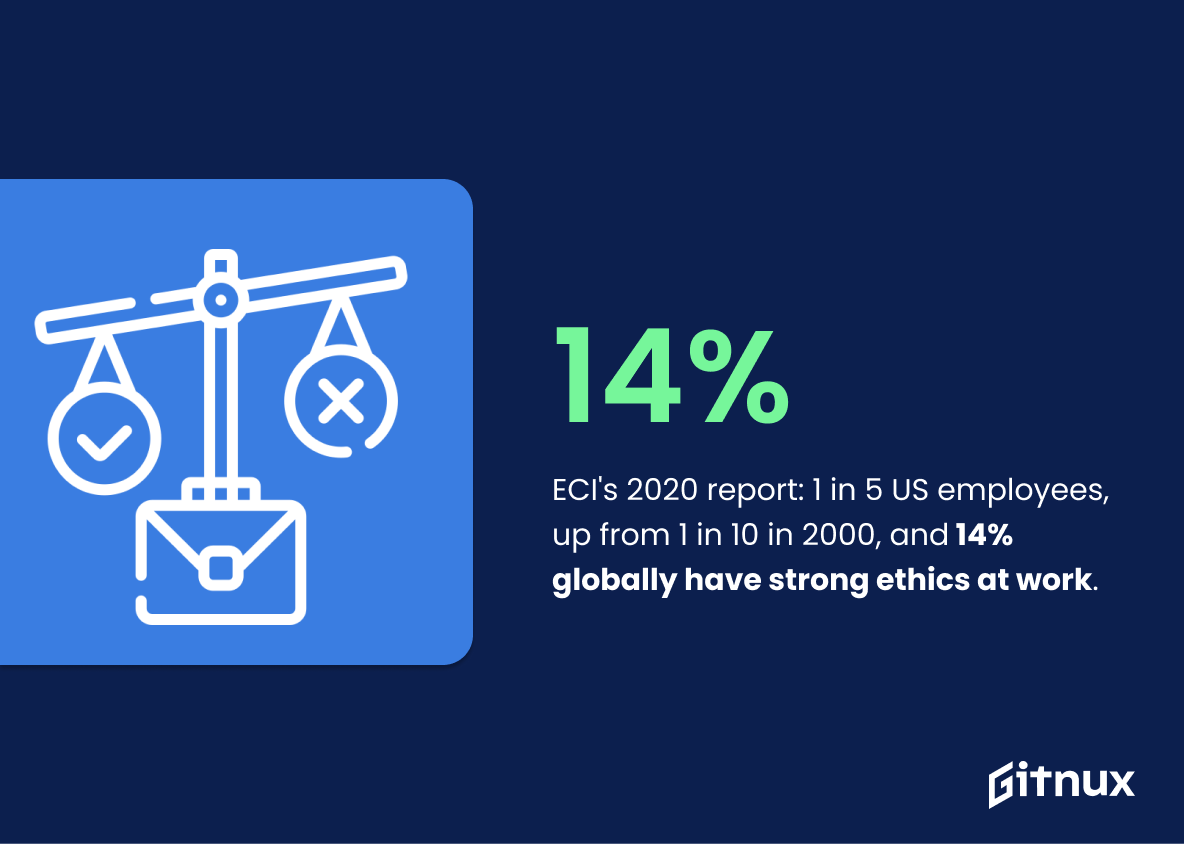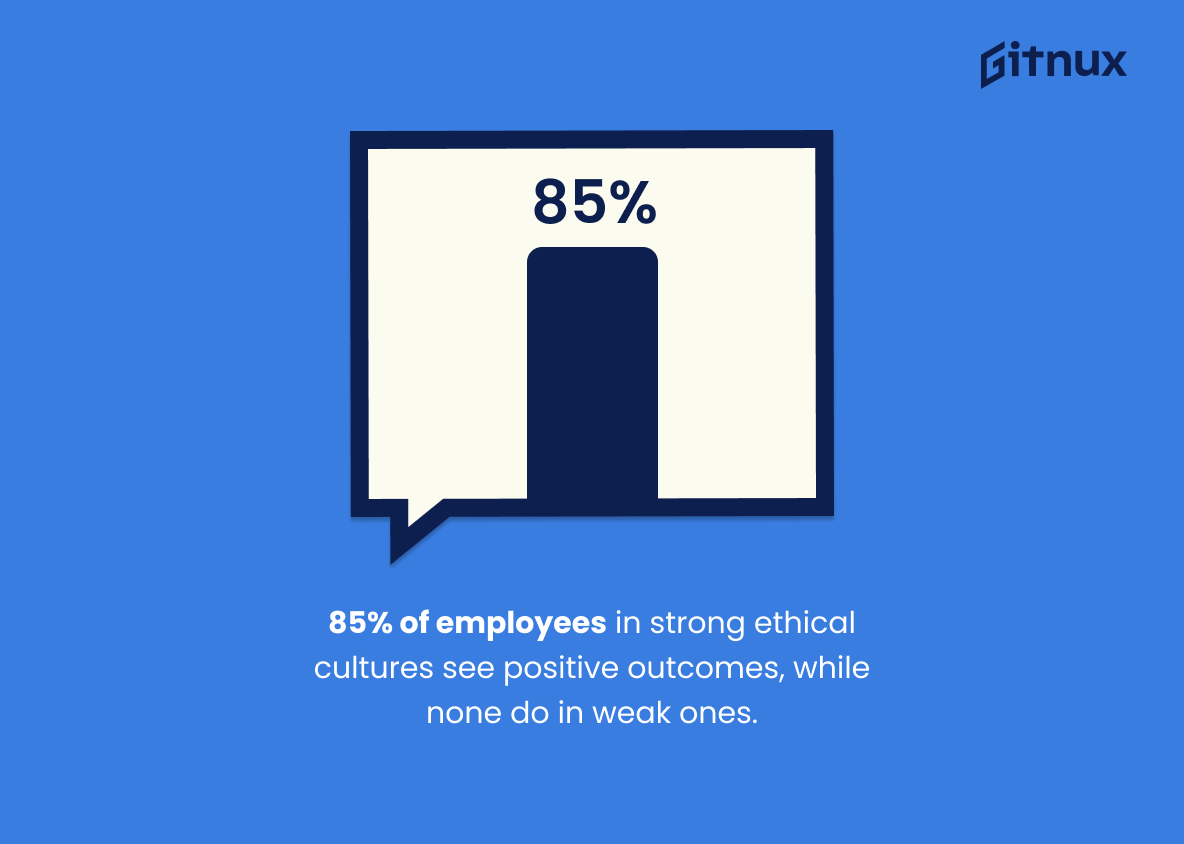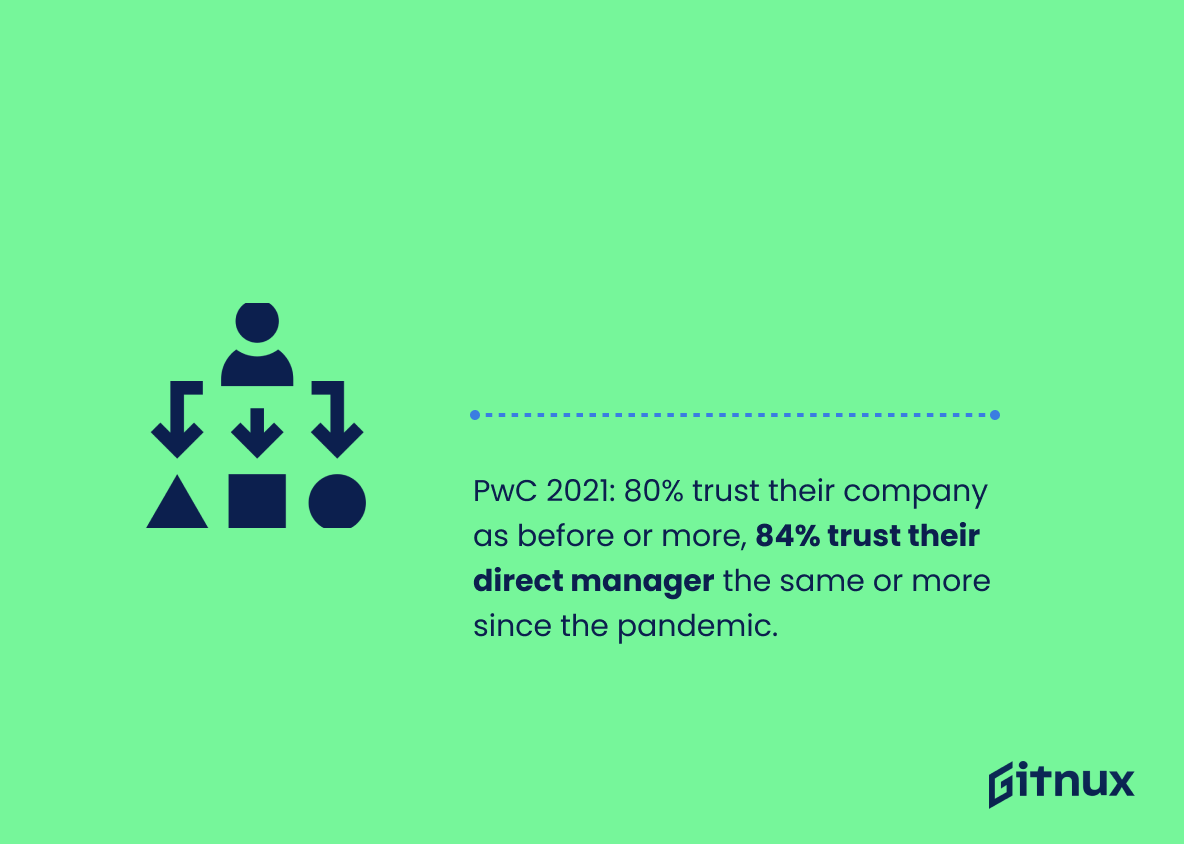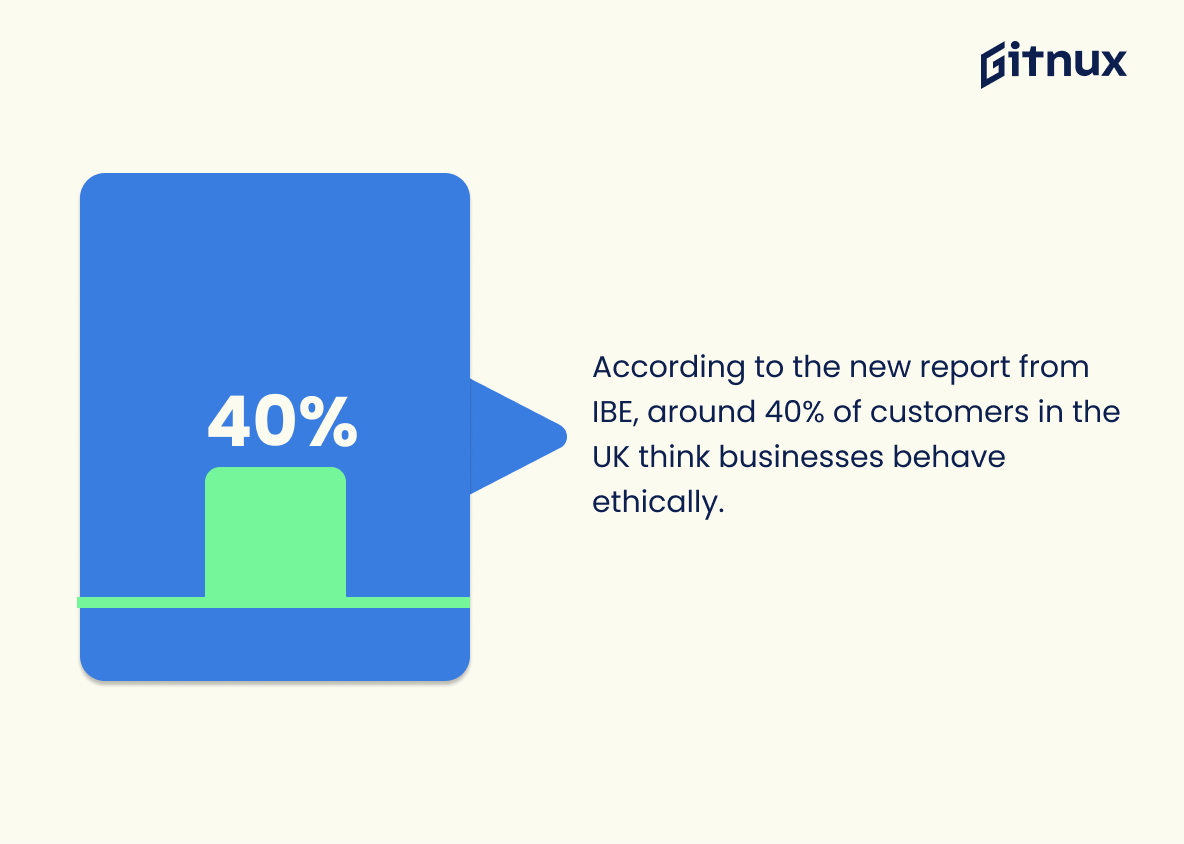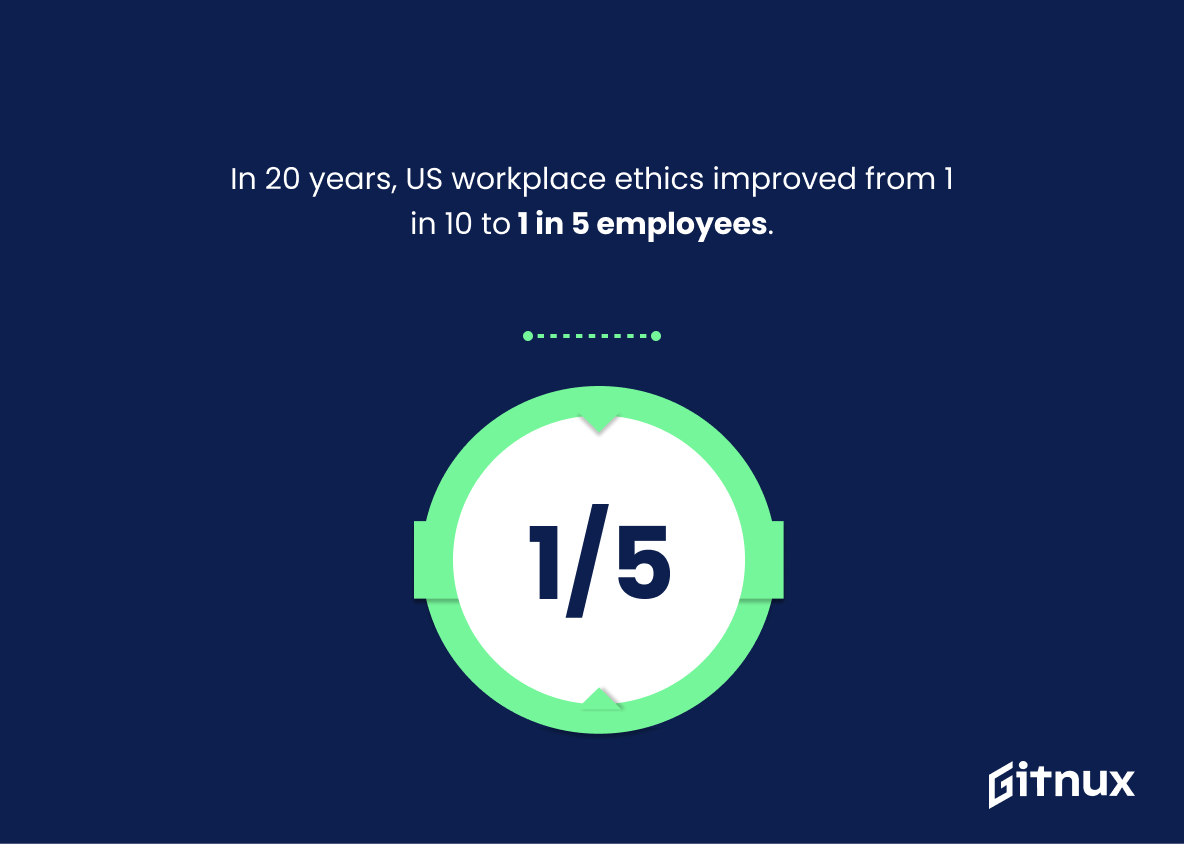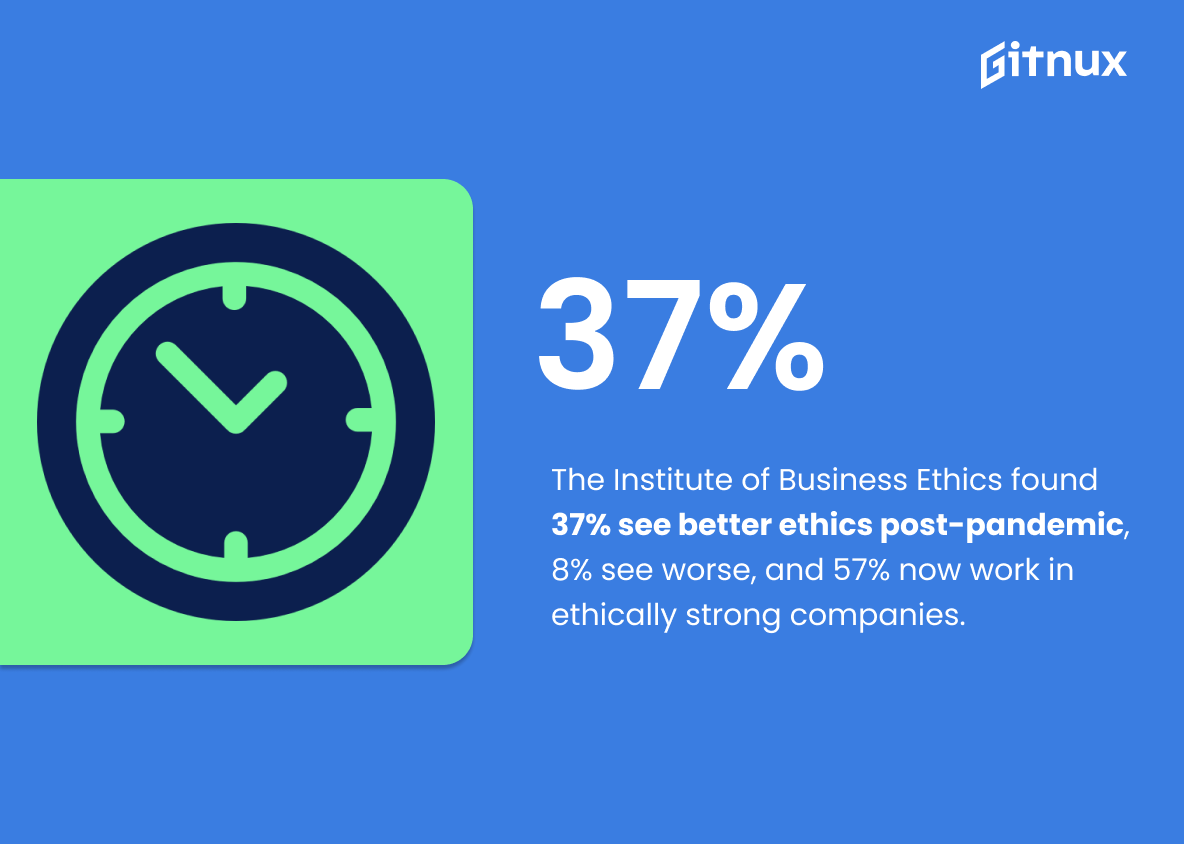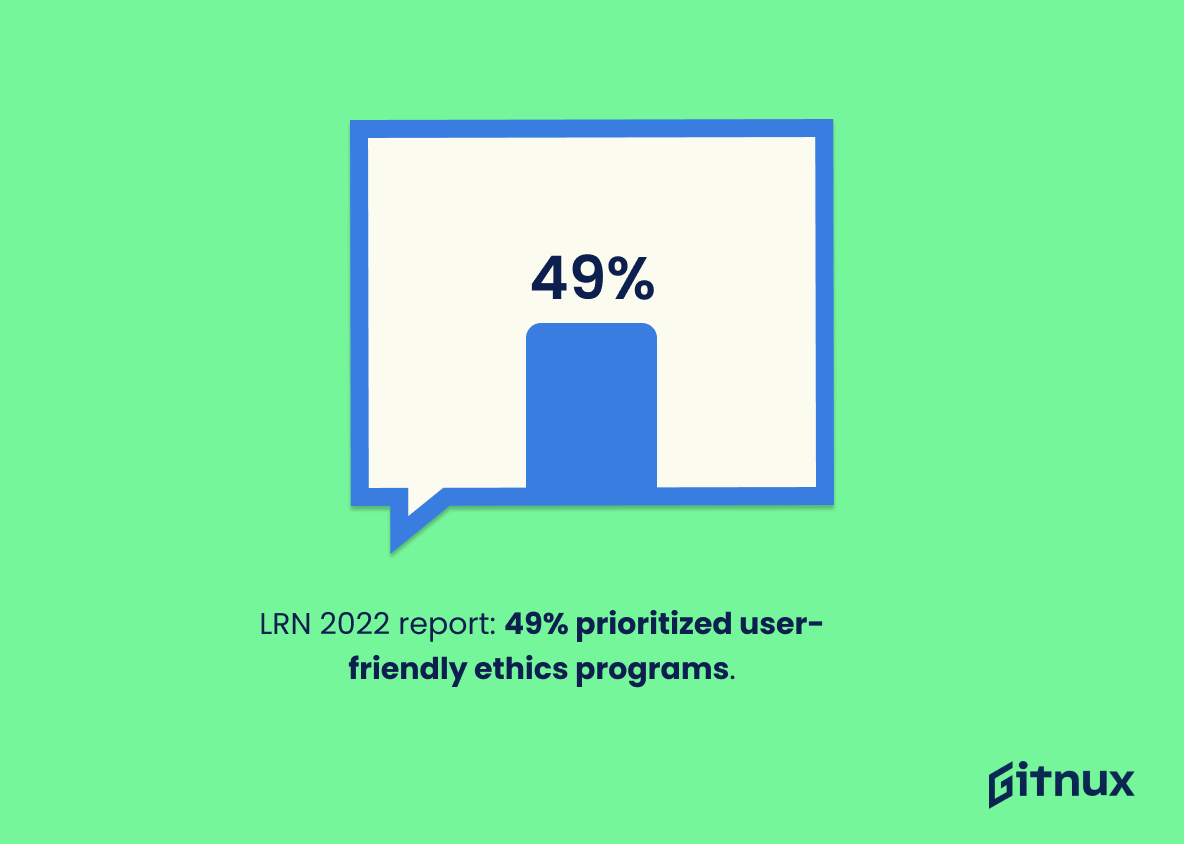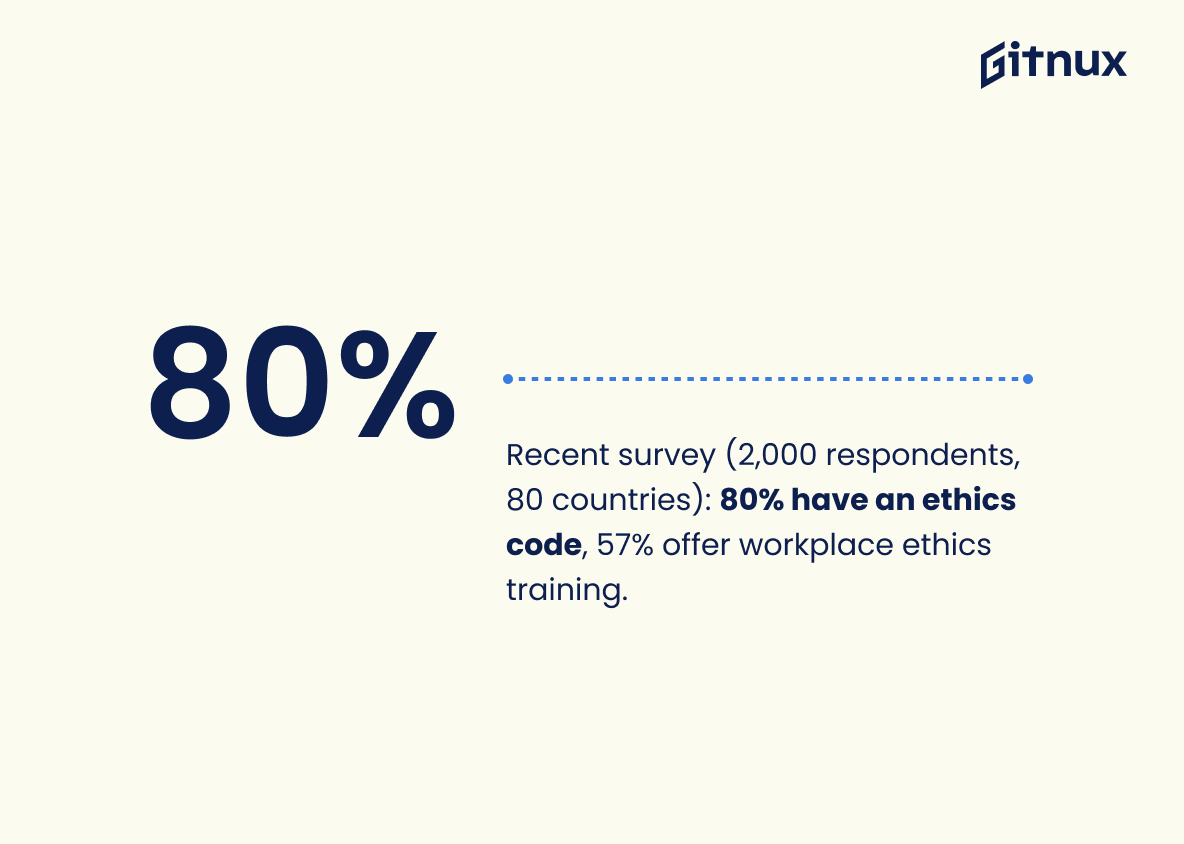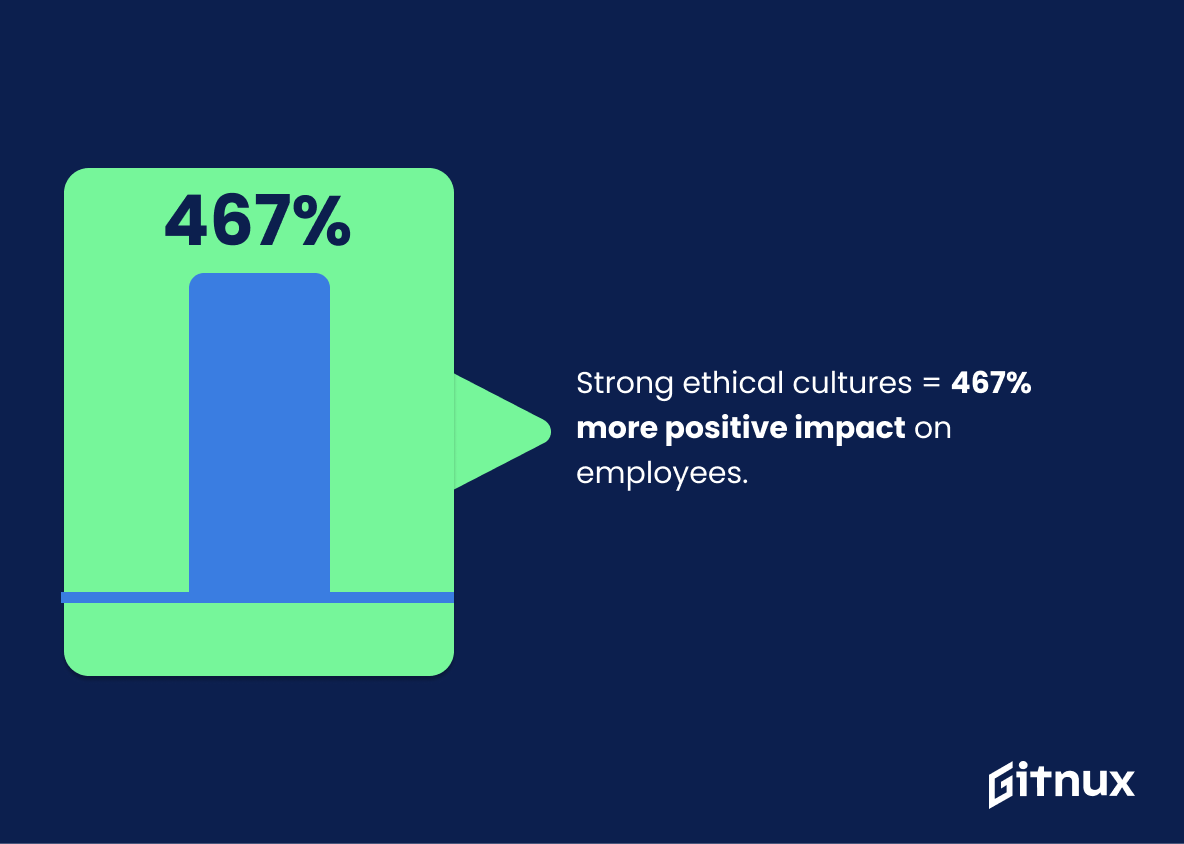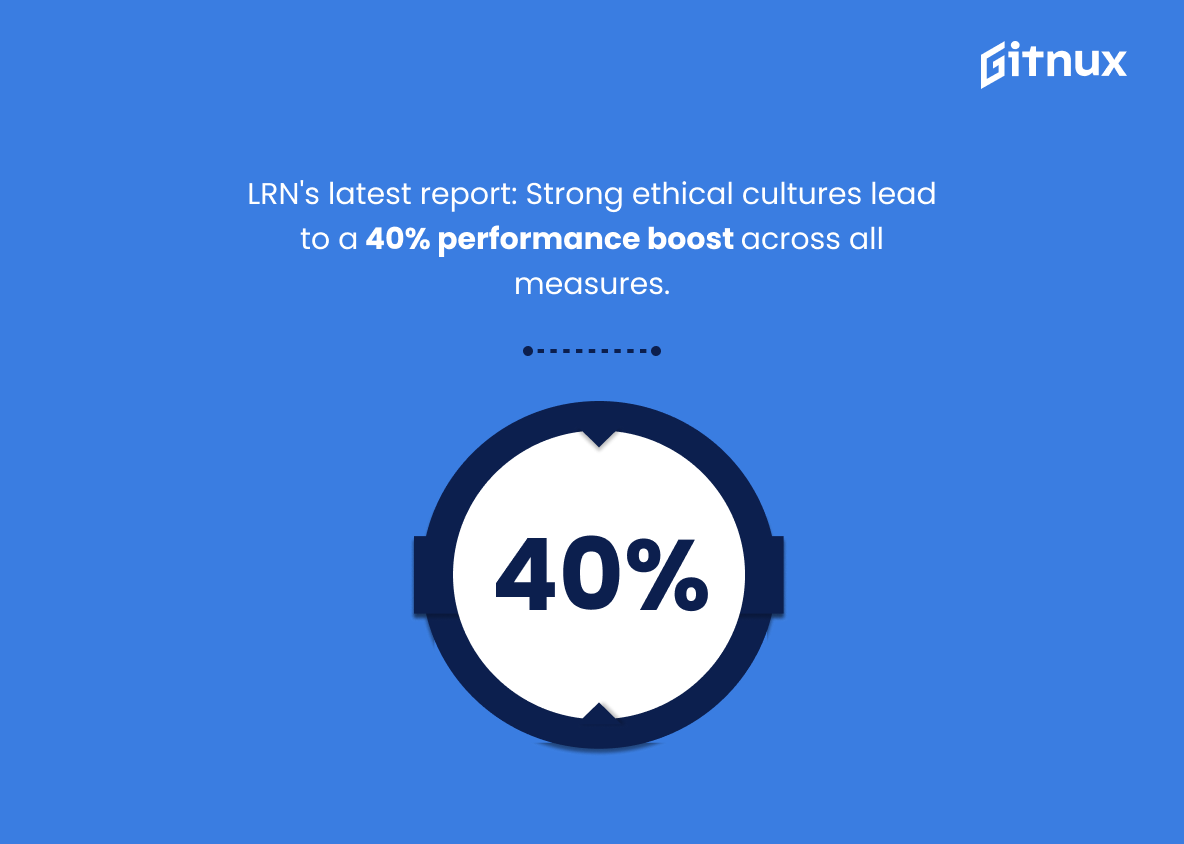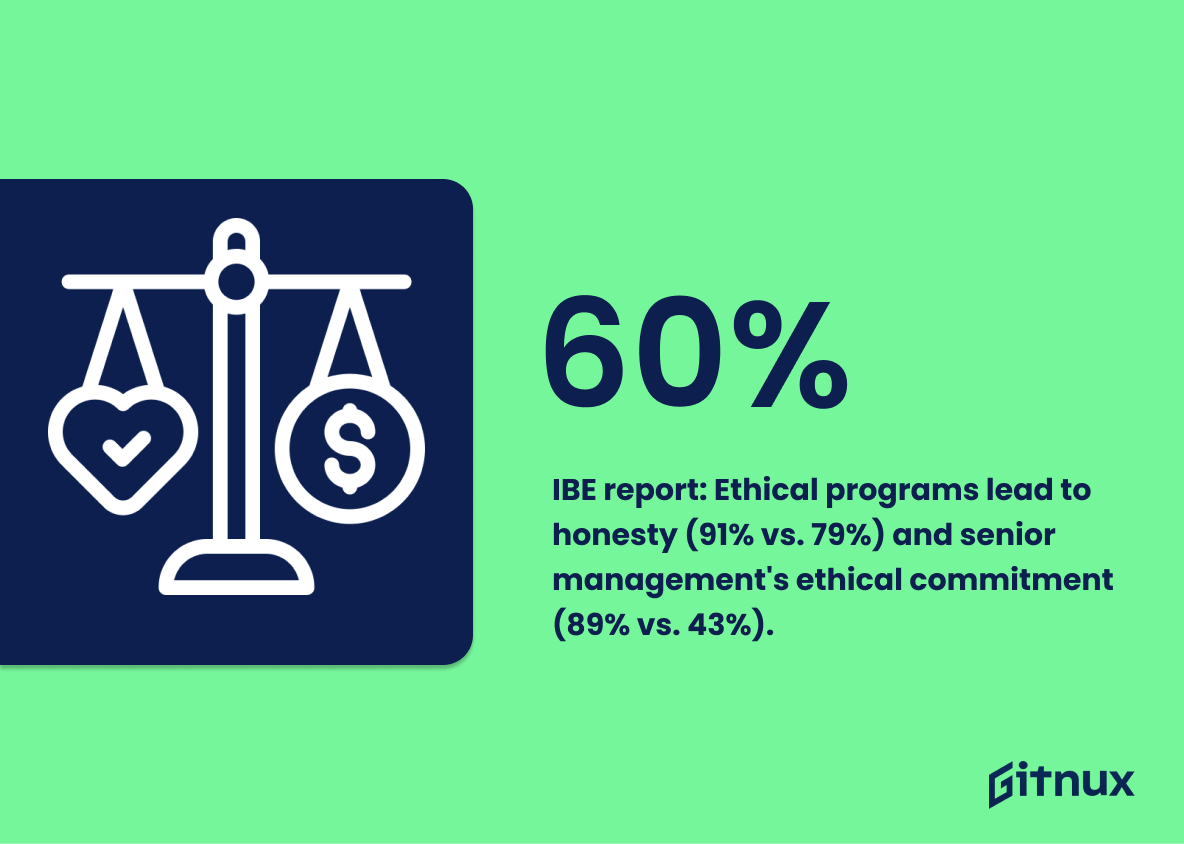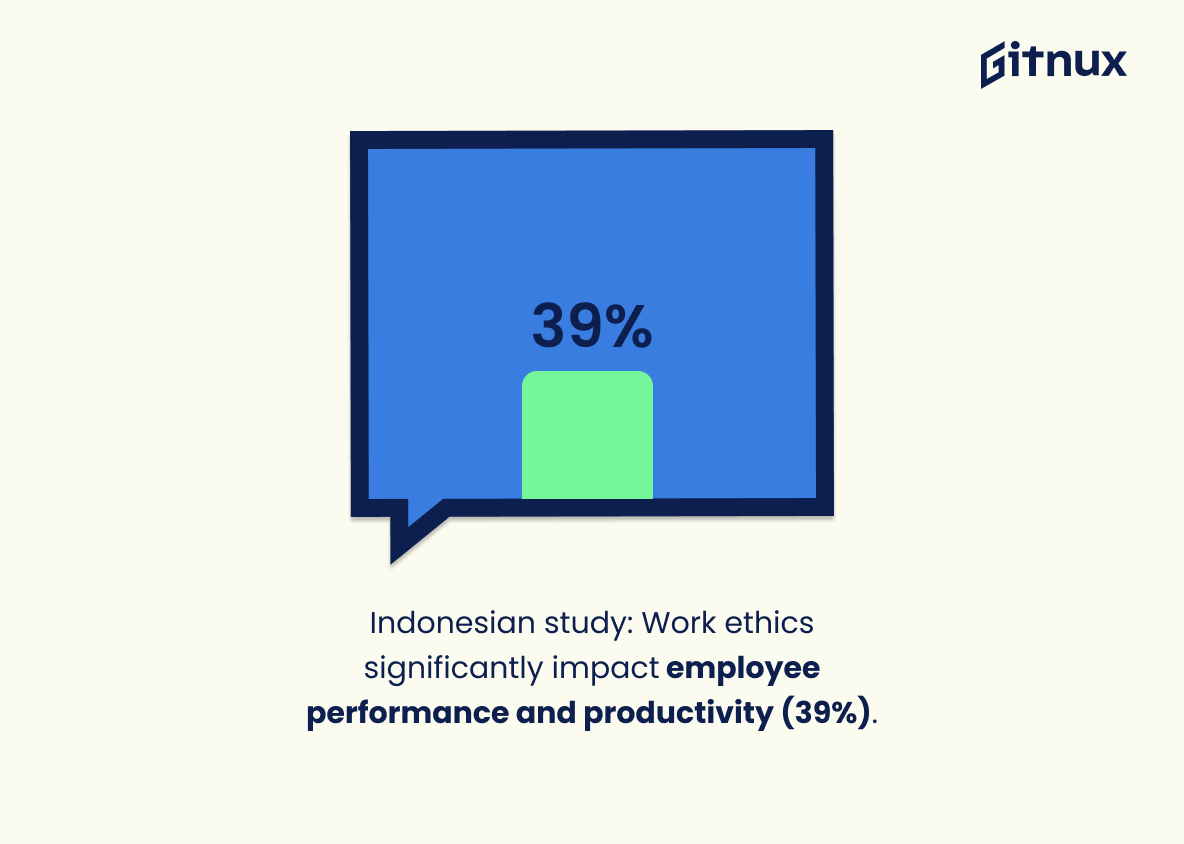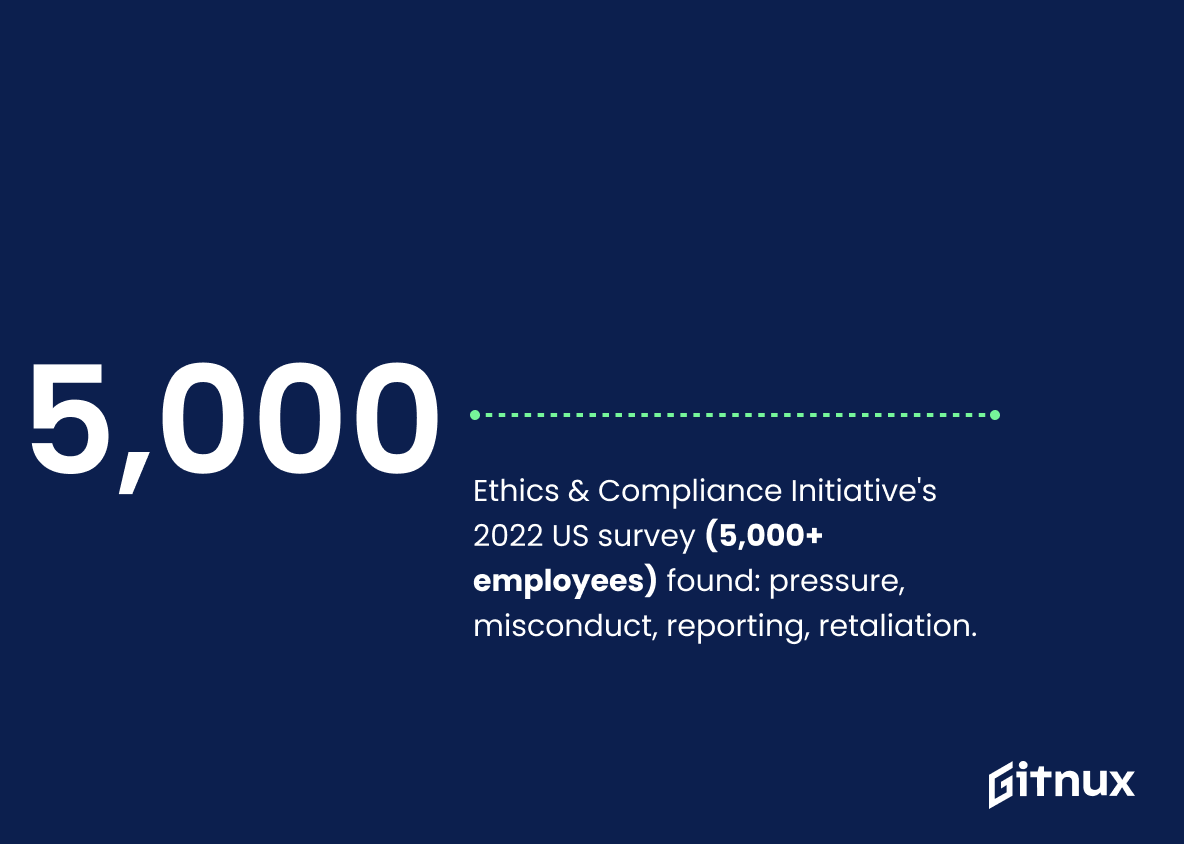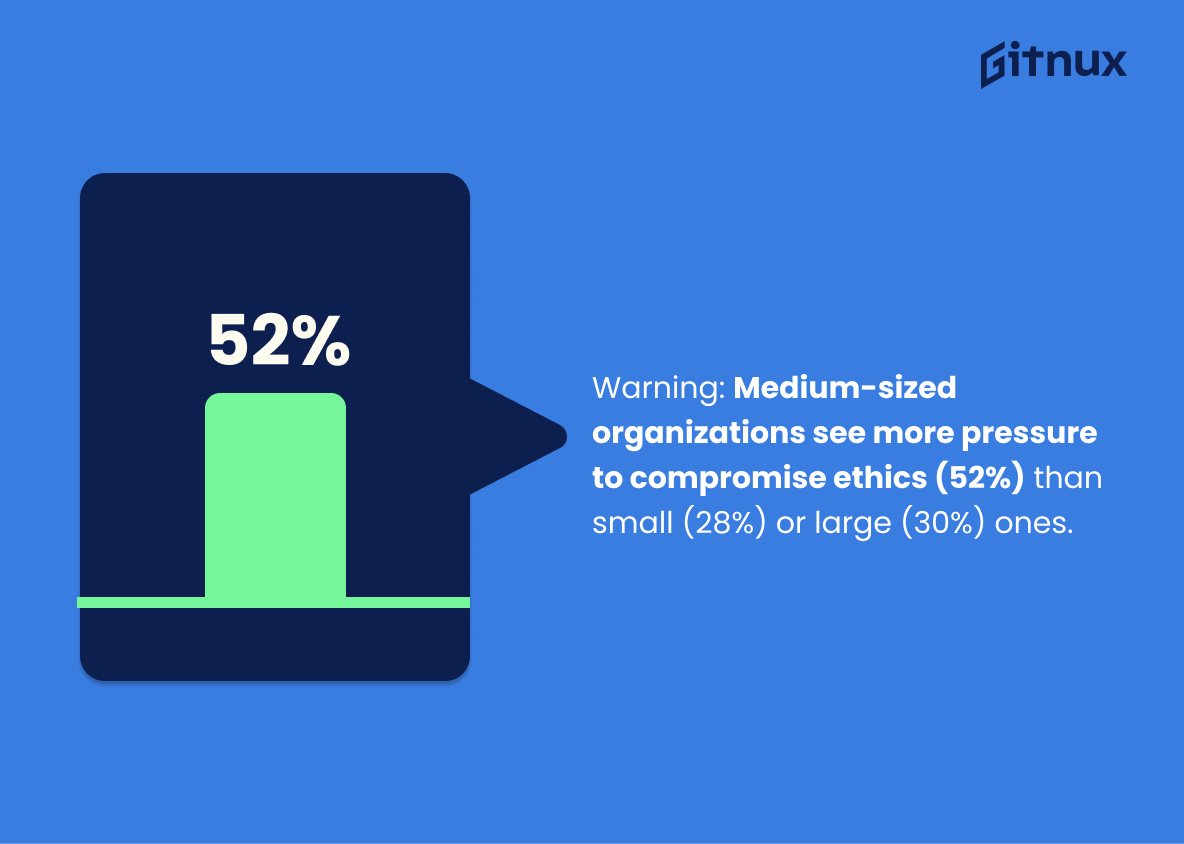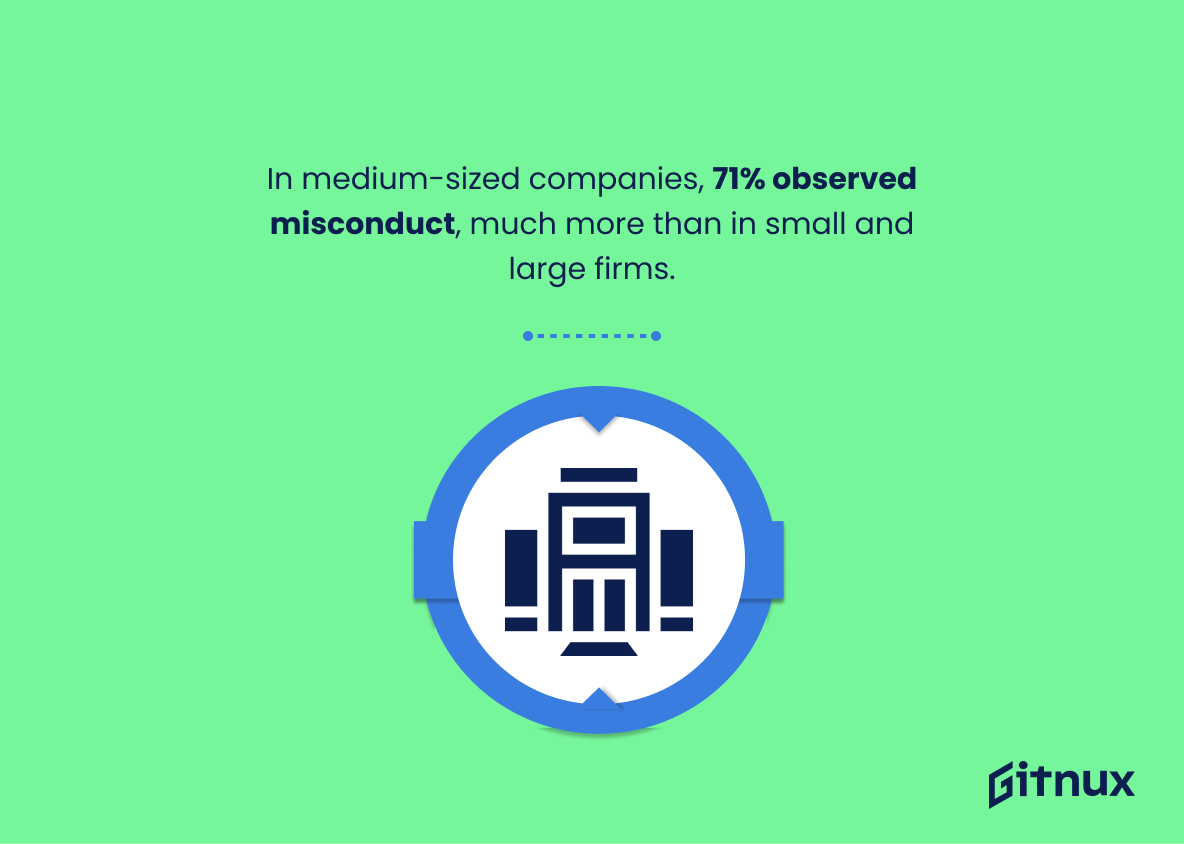Work ethic is a set of specific norms and rules of behavior in the workplace implemented by management. Strong work ethics create a positive and friendly work environment in your team. So it is critical to keep your work culture a top priority and make sure that your team members feel fairly treated and loyal to your company.
It’s not always easy to manage a team, especially when it’s multicultural and includes different age groups in it, but you should always aim for equal rights and opportunities among your team members and resolve the conflicts right at the beginning.
We think that this article can be helpful for you, no matter what position you hold. It is always interesting to learn a bit more about the world of work ethics and how it affects employees, management and business altogether.
Work Ethics: The Most Important Statistics
Organizations with strong ethical cultures are 467% more likely to demonstrate a positive impact on employees than organizations with weak-leaning cultures.
Retaliation for reporting misconduct at work has skyrocketed. In 2021 79% of the US employees and 61% globally perceived retaliation for reporting misconduct. The employment gap between disabled and non-disabled workers is 28%. And disabled workers are paid 20% less than non-disabled peers. Recent numbers show that redundancy rates due to the pandemic are 62% higher for disabled workers.
1. Useful statistics on work ethics
According to ECI’s report, in 2020 1 in 5 US employees were in workplaces with a strong ethical culture, compared with 1 in 10 in 2000. Globally, 14% of employees are working in organizations with a strong ethical culture.
85% of employees working for organizations with a strong ethical culture observe favourable outcomes, compared with 0% of employees working for organizations with a weak ethical culture.
Another research, conducted in 2021 by PwC, revealed that the majority of employees (80%) trust their company the same or more now than before the Covid pandemic. 84% of employees report trusting their direct manager the same or more since the pandemic.
According to the new report from IBE, around 40% of customers in the UK think businesses behave ethically.
2. Are work ethics getting stronger?
Over the past twenty years, ethical culture in business has grown a lot, according to the last studies. And if now 1 out of 5 employees in the US think of their workplace as one with a strong ethical culture, in 2000 it was 1 out of 10 only.
The study by the Institute of Business Ethics revealed that 37% of employees feel that the ethical standards in their organization have improved since the pandemic. Only 8% think that it got worse. 57% of employees are now in companies with a strong ethical culture.
A new report on ethics and compliance strategies by LRN revealed weaknesses in business ethical efforts in 2022: only 49% of companies prioritized their ethics and compliance programs in 2022 to make them more user-friendly and employee-focused.
A recent survey, conducted by the American Institute of Certified Public Accountants and the Chartered Institute of Management Accountants, with approximately 2,000 respondents from about 80 countries, revealed that 80% of respondents have a code of ethics or a similar document to guide staff about ethical standards in their work. 57% provide training on ethical standards at work.
3. Benefits of strong work ethics
The stronger the culture, the greater the impact. Organizations with strong ethical culture are 467% more likely to demonstrate a positive impact on employees than organizations with weak-leaning culture. This impact includes employees’ recognizing and adhering to organizational values, feeling prepared to handle key risks, reporting suspected wrongdoing and reducing levels of misconduct overall.
According to the LRN’s newest report, companies with the strongest ethical cultures outperform, by approximately 40% across all measures of business performance. Senior leaders report more favorable perceptions of the state of their cultures. Middle management report average, and individual contributors and those on the front lines report the lowest perceptions of their cultures.
According to IBE report, companies with ethical programs in place see better results overall. Employees in these organizations are more likely to say that honesty is practiced always or frequently at work (91% vs 79%) and that senior management takes ethics seriously in their organization (89% vs 43%).
A study, conducted in Indonesia, discovered that work ethics have a significant effect on employee performance and productivity with a contribution of 39% influence.
4. Work ethics misconduct
Ethics & Compliance Initiative conducted a survey among over 5 000 employees in the US in 2022 and discovered that the main factors, influencing ethical behavior, are: pressure to compromise ethical standards, observations of misconduct, reporting of observed misconduct, and retaliation perceived by employees after they have reported misconduct. Here are some numbers from the survey.
Pressure to compromise ethical standards serves as a warning signal for both ongoing and future misconduct. The number of employees in medium-sized organizations who experience this pressure is much higher than in small and large companies. 52% of employees in medium organizations, compared to 28% and 30%, accordingly.
The rate at which employees observe misconduct is an indicator of the ethical culture strength, and stronger cultures generally have lower rates of observed misconduct. Over 2/3 (or 71%) of employees in medium-sized companies observed at least one misconduct at work, which is significantly higher than in small and large companies.
Retaliation can take many forms, and it is critical that managers make it clear that their company doesn’t tolerate it. The majority of surveyed employees reported that they’ve experienced retaliation at work, regardless of the size of their organization. It varies from 93% to 97%.
Disability discrimination is the most commonly reported type of discrimination, with 24,324 claims filed in 2020 in the US only.
Another survey, carried out by TUC in the UK, uncovered that nearly 1 in 3 (30%) disabled workers had been treated unfairly at work during the Covid-19 pandemic. It also revealed that many disabled people experienced significant barriers in the workplace before 2020, and that the pandemic has made things worse for them.
The same survey has discovered, that disabled people are hugely underrepresented and underpaid in the work market. The employment gap between disabled and non-disabled workers is 28%. And disabled workers are paid 20% less than non-disabled peers. Recent numbers show that redundancy rates due to the pandemic are 62% higher for disabled workers.
Sexual harassment. According to the US Equal Employment Opportunity Commission, they receive more and more sexual harassment charges every year. In 2018, they have received 7,609 charges, which was a 13,6% higher than in the previous year. They also reported, that most of the charges (78,2%) in the past three years were filled by women.
In Australia, 1 in 3 people (33%) have experienced sexual harassment at work in the last 5 years.
5. What are the perspectives on work ethics?
According to ECI study, the number of employees with a strong ethical culture at work has doubled in the past 20 years. So, if in 2000 only 1 in 10 US employees were in workplaces with a strong culture, in 2020 it was 1 in 5 employees. If we talk about the global picture, around 14% of employees in the world feel that they are working in organizations with a strong ethical culture.
Observed misconduct, while steady, is inching upwards, with more and more employees reporting it. Globally, 8 in 10 employees reported misconduct in ECI’s research in 2021. The most common types of misconduct are favoritism, management lying to employees and conflicts of interest.
Another growing problem is the pressure to compromise ethical standards. Studies revealed, that now it’s the highest it has ever been. For example, in the US, in 2020 employees experienced 2x more pressure than in 2017. Globally, 29% of employees reported pressure in 2020, an increase from 20% in 2019.
Retaliation for reporting misconduct at work has skyrocketed. According to ECI’s report, in 2021 79% of US employees and 61% globally perceived retaliation for reporting misconduct.
Supplementary Statistics
75% of Americans identify good work ethic as being “very important” in an employee’s success.
The majority of Americans recognize the importance of having a strong work ethic in order to be successful in the workplace. This statistic can be used to emphasize the importance of having a good work ethic in a blog post about work ethics statistics, and can be used to encourage readers to strive for excellence in their work.
89% of employees believe work ethic is a crucial factor in gaining respect from business leaders.
The majority of employees recognize the value of hard work and dedication in gaining respect from business leaders. This statistic is especially relevant for a blog post about work ethics statistics, as it provides a clear illustration of the importance of work ethic in the workplace.
Poor work ethic is reported as one of the top five reasons for employee terminations.
This highlights the consequences of not taking one’s job seriously, and serves as a warning to those who may be tempted to slack off. It also serves as a reminder to employers that they should be vigilant in monitoring their employees’ work ethic and take appropriate action when necessary. Ultimately, this statistic serves as a reminder that having a strong work ethic is essential for success in the workplace.
43% of employees state that a strong work ethic creates satisfaction in their careers.
A significant portion of employees recognize the value of hard work and dedication in achieving success and fulfillment in their professional lives. This information can be used to emphasize the importance of a strong work ethic in a blog post about work ethics statistics, and to encourage readers to strive for excellence in their own careers.
Businesses that promote work ethics are 25% more likely to retain top talents.
Businesses that prioritize work ethics are more likely to keep their best employees, which can lead to increased productivity and success. This is especially important for businesses that are looking to attract and retain top talent, as it shows that investing in work ethics can have a positive impact on their bottom line.
70% of employees would consider leaving their job if their company had poor ethical practices.
This statistic is a powerful indicator of the importance of ethical practices in the workplace. It shows that employees are increasingly aware of the need for ethical practices and are willing to take action if their company does not meet their standards. This statistic is a reminder to employers that they must prioritize ethical practices in order to retain their employees and ensure a healthy and productive work environment.
More than 50% of younger employees aged between 18 and 34 prioritize ethical behavior in their workplace.
A majority of younger employees prioritize ethical behavior in their workplace, suggesting that ethical behavior is a key factor in their decision-making process. This is an important point to consider when discussing work ethics, as it highlights the importance of ethical behavior in the workplace and the need for employers to ensure that their employees are aware of and adhere to ethical standards.
Poor work ethic in employee teams can lead to a 30-40% decrease in productivity.
When work ethic is lacking, the productivity of the team can suffer significantly. This is an important point to consider when discussing work ethics statistics, as it emphasizes the need for employees to be held accountable for their work ethic and the consequences of not doing so.
Companies with strong ethical cultures observe revenue growth four times higher than counterparts without.
Ethical behavior is not only the right thing to do, but also a sound business decision. This statistic is a valuable addition to any blog post about work ethics statistics, as it provides a tangible example of the positive impact that ethical cultures can have on a business.
81% of potential job applicants value the clarity of workplace ethics when evaluating job offers.
Potential job applicants are placing a high priority on the clarity of workplace ethics when evaluating job offers, indicating that employers should be transparent about their ethical standards and expectations. This is especially important in the current climate, where employees are increasingly looking for employers who prioritize ethical practices.
Employees with a strong work ethic take an average of two fewer sick days per year than those without.
Those who prioritize their work and take it seriously are more likely to be reliable and consistent in their attendance, taking fewer sick days than those who do not prioritize their work. This is an important statistic to consider when discussing the value of having a strong work ethic, as it shows that it can have a tangible impact on the workplace.
40% of employees who feel their company lacks strong ethical leadership are more likely to leave their job.
When employees feel their company lacks strong ethical leadership, they are more likely to seek employment elsewhere. This highlights the need for employers to prioritize ethical leadership in order to retain their employees and create a positive work environment.
Employees who rate their organization low on ethical culture stay at their job for half as long as those who rate it highly.
Employees who feel their organization has a strong ethical culture are more likely to stay in their job for longer, while those who feel their organization has a weak ethical culture are more likely to leave sooner. This has significant implications for employers, as it suggests that creating and maintaining a strong ethical culture is essential for employee retention.
Company fraud can decrease by 50% in businesses that instill a strong work ethics culture.
When a company prioritizes ethical behavior, it can lead to a significant decrease in fraud. This is an invaluable insight for any business looking to create a culture of integrity and trust. It shows that investing in a strong work ethics culture can have a tangible, positive impact on the bottom line.
Only 36% of employees think that their leadership acts consistently with the company’s ethics and values.
Their leadership is upholding the company’s ethics and values. It is a sign that there is a disconnect between the company’s stated values and the actions of its leadership, which can lead to a lack of trust and morale among employees.
This can have a negative impact on the company’s overall performance and productivity, as well as its reputation in the marketplace. Therefore, this statistic is an important indicator of the need for companies to ensure that their leadership is living up to the company’s ethical standards.
98% of senior executives believe that having a strong work ethic is important for their company’s success.
It is essential for their company’s success. This statistic can be used to emphasize the importance of work ethic in the workplace and to encourage employees to strive for excellence in their work. It can also be used to demonstrate the importance of setting a good example for others and to show that hard work and dedication are rewarded.
Conclusion
Work ethics are an essential element of a successful business, and if you don’t have a strong ethical culture in your company, you better start implementing it soon. The latest statistics show us that organizations understand the importance of strong ethical standards in workplaces, and this complex topic is getting more and more popular. Strong and fair work ethics not just help you to implement certain rules in your company, but also motivate your team and increase your employees’ productivity.
At the same time, you can see that ethical misconduct and retaliation are inching upwards, despite the efforts management invests in increasing ethical codes and policies.
It’s crucial for companies to ensure that their ethical rules at work are fully obeyed and that the team members are treating each other with proper respect and kindness.
References:
Ethics & Compliance Initiative: “The State of Ethics & Compliance in the Workplace: A Look at Global Trends”, cited in January 2023 (Source)
Ethics & Compliance Initiative: “The State of Ethics & Compliance in the Workplace Differences Between Small, Medium and Large Enterprises”, cited in January 2023 (Source)
PwC: “The Complexity of Trust: PwC’s Trust in US Business Survey”, cited in January 2023 (Source)
IBE: “Attitudes of the British Public to Business Ethics 2021”, cited in January 2023 (Source)
IBE: “Key Findings”, cited in January 2023 (Source)
LRN: “How do you excel in the face of disruption?”, cited in January 2023 (Source)
LRN: “LRN Benchmark of Ethical Culture”, cited in January 2023 (Source)
Scientific Journal of Management: “The Effect of Compensation and Work Environment on Work Ethic Which Impact on Employee Performance at PT”, cited in January 2023 (Source)
Sessions & Kimball: “Disability Discrimination Statistics [2010-2020]”, cited in January 2023 (Source)
TUC: “About the TUC”, cited in January 2023 (Source)
Equal Employment Opportunity Commission: “Sexual Harassment in Our Nation’s Workplaces”, cited in January 2023 (Source)
Safe Work Australia: “Workplace sexual harassment statistics and What to do if you are sexually harassed at work– new infographics”, cited in January 2023 (Source)
ZipDo, cited June 2023: Work Ethics Statistics
